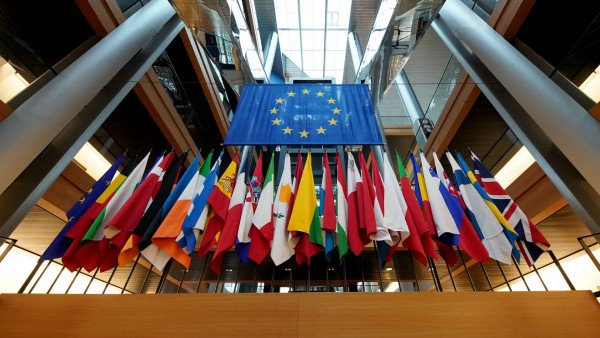The European Union promised more than 2 billion euros ($2.2 billion) on Monday to support displaced Syrians, but it dismissed any notion of them being able to return home because of instability under Syrian President Bashar al-Assad.
Before an EU-led donor conference on the 13-year-old war, Jordan’s foreign minister said that the international community was abandoning Syrian refugees as funding to support them in host countries dwindles, suggesting that ways had to be found to ease voluntary returns to Syria.
The EU conference aims to keep the war on the agenda, as well as support for the millions of refugees it has created. However, as the economic and social burden on neighbouring countries mounts, the bloc is divided and unable to find solutions, diplomats say.
Refugees returning home is not yet one of them; however, the bloc’s foreign policy chief, Josep Borrell, made this clear at the start of the conference.
“While the European Union would wish that returning home could be a realistic option for all refugees, everywhere and always, we concur with the United Nations system that currently the conditions for safe, voluntary and dignified returns to Syria are not in place,” Borrell said.
“We insist that it is the Assad regime that bears the primary responsibility for putting in place these conditions.”
Borrell said the bloc pledged 560 million euros in 2024 and 2025 to support refugees in Syria, Lebanon, Iraq, and Jordan and 1 billion dollars for Turkey.
Syria has become a forgotten crisis that nobody wants to stir amid Israel’s war on Gaza and tensions growing between Iran and Western powers over its regional activities.
Although Assad has long since reasserted control over most of Syria in a war that began with a 2011 uprising against him, more than 5 million refugees, mostly in Lebanon, Turkey and Jordan and millions more displaced internally, still have little prospect of returning home.
“We’re going to be sending an obvious message from Jordan as a host country that we feel that refugees are being abandoned,” Ayman Safadi told reporters on arrival in Brussels. “Host countries are being abandoned.”
Jordan is hosting around 1.3 million Syrians. Safadi said the issue “can only be solved by them going back to their country. So, we need to focus more on creating conditions conducive for them to return voluntarily.”
Funding for refugees is dropping, and the World Food Programme is reducing its aid. Countries say hosting refugees is an increasing burden, notably in economic crisis-hit Lebanon, where the discontent has seen forced deportations.
“We expect our partners to uphold international law, including the principle of non-refoulement, and reject and condemn any forced deportations,” Borrell said.
The 8th Syria conference will bring together European and Arab ministers along with key international organisations, but diplomats said that beyond vague promises and financial pledges, there are few signs that Europe can take the lead.
The bloc has no ties with the Assad government, and Monday’s talks come just ahead of the European elections on 6-9 June, in which migration is a divisive issue among the EU’s 27 member states. With far-right and populist parties already expected to do well, there is little appetite to step up refugee support.
An upswing in migrant boat arrivals from Lebanon to Europe, with Cyprus and Italy as major destinations, has prompted some EU countries to warn of a significant new influx into the bloc.
“We’ll continue to do everything we can. But unless we’re helped unless the international community shoulders its responsibility, there will be a decrease in services, and there will be more suffering for refugees,” Safadi said.
(Reuters)


